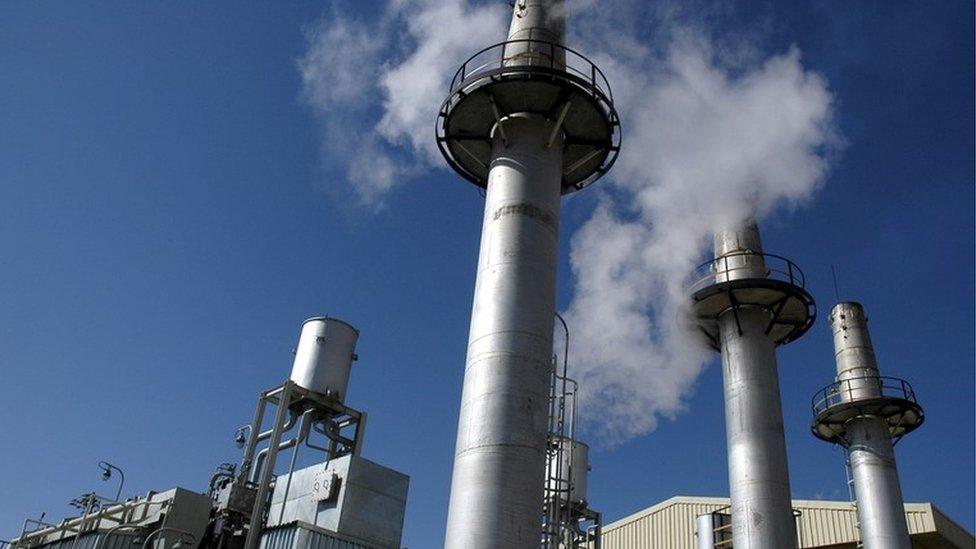Iran nuclear deal: Minister says sanctions 'to be lifted'
- Published

Iran has to convert its heavy water reactor at Arak as part of the deal
International sanctions against Iran are to be lifted today, the country's Foreign Minister Javad Zarif has said.
Mr Zarif is in Vienna for talks with US Secretary of State John Kerry over Iran's nuclear deal.
The international nuclear watchdog, the IAEA, is expected to confirm that Iran has scaled back its atomic activities in line with the agreement.
Lifting sanctions would unfreeze billions of dollars of assets and allow Iranian oil to be sold internationally.
Iran nuclear deal: Key details
"Today is a good day for the Iranian people as sanctions will be lifted today," Iran's ISNA agency quoted Mr Zarif as saying.
He said the IAEA's report meant implementation of the nuclear deal would go ahead.
The State Department said all parties had "continued making steady progress" towards implementing the deal, adding it would ensure the "exclusively peaceful nature" of Iran's programme.
As part of the deal, Iran had to drastically reduce its number of centrifuges and dismantle a heavy-water reactor near the town of Arak, both of which could be used in creating nuclear weapons. Iran has always maintained its programme is peaceful.
The July 2015 agreement was seen by some as a foreign policy landmark - Iranian President Hassan Rouhani called the deal "historic".
But opponents remain, such as some US Republicans who say it does not do enough to ensure Iran cannot develop a bomb.

Iran's press anticipates lifting of sanctions
Many newspapers have hailed "good days ahead" for the economy, but the hardline press has lamented nuclear restrictions, with Vatan-e Emruz declaring closing the Arak reactor amounted to a "nuclear burial".
Moderate Iran and reformist Mardom Salari feared Saudi Arabia and US Republicans would try to sabotage the deal, the latter predicting that "powerful hands will try to boobytrap this path".
Meanwhile Conservative Hemayat said the nuclear deal would not "resolve the problem with the village chief" - referring to the US - and hardline Keyhan argued that the deal had not led to a let-up in US "anti-Iranian propaganda".
Source: BBC Monitoring

What is the nuclear deal?
In July 2015, Iran agreed a landmark nuclear deal with six world powers to limit its sensitive nuclear activities for more than a decade in return for the lifting of crippling sanctions. The US is confident the agreement will prevent Iran from obtaining a nuclear weapon. Iran says it has the right to nuclear energy - and stresses that its nuclear programme is for peaceful purposes only.
When is 'implementation day'?
Iran will not see the UN, US and EU sanctions lifted until the global nuclear watchdog, the International Atomic Energy Agency (IAEA), certifies that it has fulfilled its commitments under the deal. The precise date of the so-called "implementation day" has not been determined. But Iran says it has met those commitments earlier than expected.
What does Iran stand to gain?
The sanctions have cost Iran more than more than $160bn (£102bn) in oil revenue since 2012 alone. Once they are lifted, the country will be able to resume selling oil on international markets and using the global financial system for trade. Iran has the fourth largest oil reserves in the world and the energy industry is braced for lower prices. Iran will also be able to access more than $100bn in assets frozen overseas.
